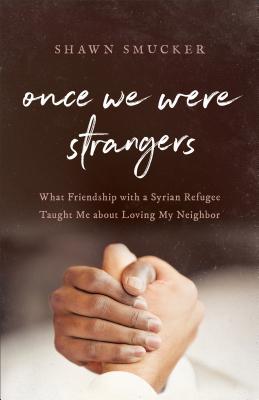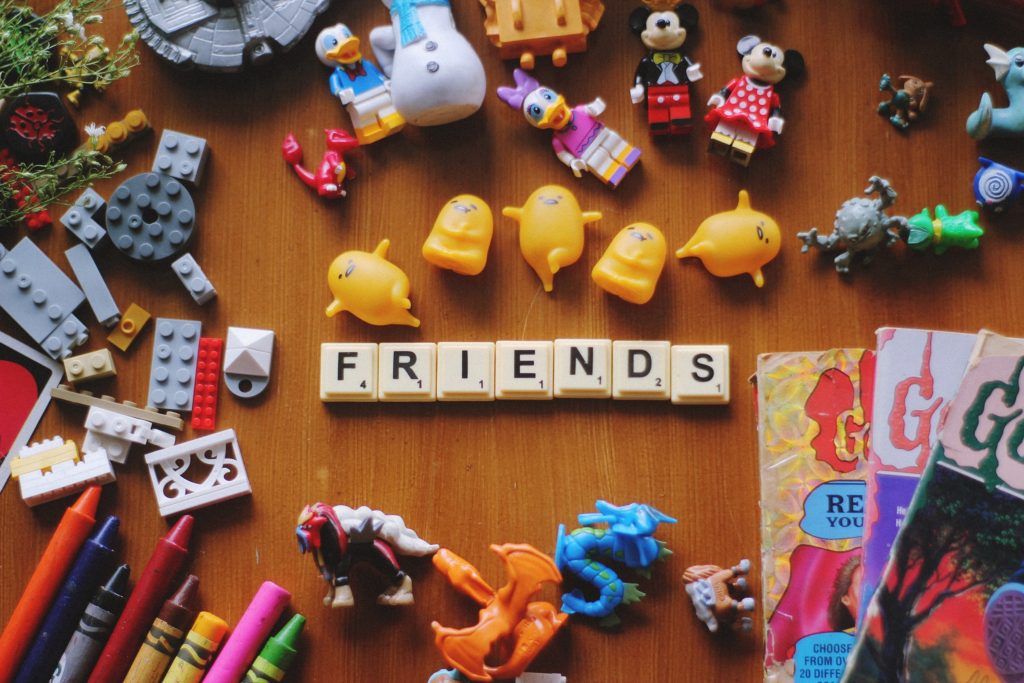Does friendship matter? Can it change the world? What does it mean to be a friend?
This new book about a Lancaster, Pa. native and a Syrian refugee who resettled to the area addresses these questions in an honest story of making time and room for people in our busy lives.
 Once We Were Strangers: What Friendship with a Syrian Refugee Taught Me About Loving My Neighbor by Shawn Smucker isn’t overtly dramatic or adventurous and friendship between these two men might not seem like anything significant. But that’s exactly why it’s the perfect book for the times we live in. Shawn doesn’t set out to “save” his friend Mohammed from his circumstances, and the world doesn’t noticeably shift because of their relationship. But these two men are changed, and how their relationship developed is accessible to all of us. We can all befriend someone with whom we have nothing in common simply by showing up and listening. (And repeating that process often.)
Once We Were Strangers: What Friendship with a Syrian Refugee Taught Me About Loving My Neighbor by Shawn Smucker isn’t overtly dramatic or adventurous and friendship between these two men might not seem like anything significant. But that’s exactly why it’s the perfect book for the times we live in. Shawn doesn’t set out to “save” his friend Mohammed from his circumstances, and the world doesn’t noticeably shift because of their relationship. But these two men are changed, and how their relationship developed is accessible to all of us. We can all befriend someone with whom we have nothing in common simply by showing up and listening. (And repeating that process often.)
Back to those questions I posed at the beginning of this post.
What does it mean to be a friend? Shawn talks honestly about this, how he doesn’t feel like a good friend to Mohammed, how on their first meeting, Mohammed considered them friends. I’ve experienced this firsthand with refugees in our area. They call us “friends” on first meeting, and it’s humbling. It challenges our western notions that friendship is earned. This book reminds us that friendship can be a gift we give each other, no strings attached.
Does friendship matter? Can it change the world? You could read this book and say, “No. It makes no difference in the world. Nothing fundamentally changed in the world.” We’re still divided in this country about whether people from other countries, especially those fleeing violence and persecution, are welcome in our country. We’re still afraid of people whose skin color is different, whose native language is different, whose practice of religion is different.
But I would say that friendship absolutely matters and it might not change the world in ways we can see immediately, but it has a forever impact on the people involved. Shawn’s and Mohammed’s lives will never be the same because they met and continued to meet over strong coffee, sometimes late at night. Their children will be changed by their friendship. Their communities will be better because they were willing to step across a divide that whispered “you can’t be friends with him.”
This is a story of slow change, steady presence, and continual showing up. It’s not necessarily exciting work, but it is the good and necessary work of a society that sees the other as enemy.
If you can’t imagine ever becoming friends with Syrian refugee, I encourage you to read this book. If you don’t understand why people flee their home countries, I encourage you to read this book. The chapters about Mohammed’s family’s exit from Syria are some of the hardest to read. If you fully support the resettlement of refugees in the United States, I encourage you to read this book.
Disclosure: I read an advance copy of the book courtesy of Bake Publishing Group. Review reflects my honest opinion.
